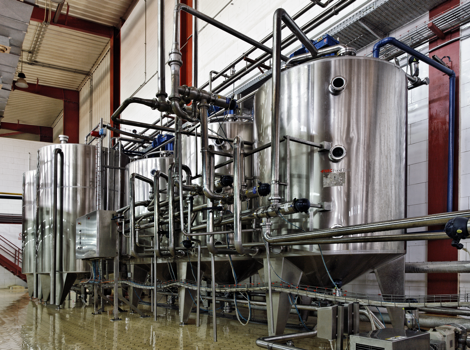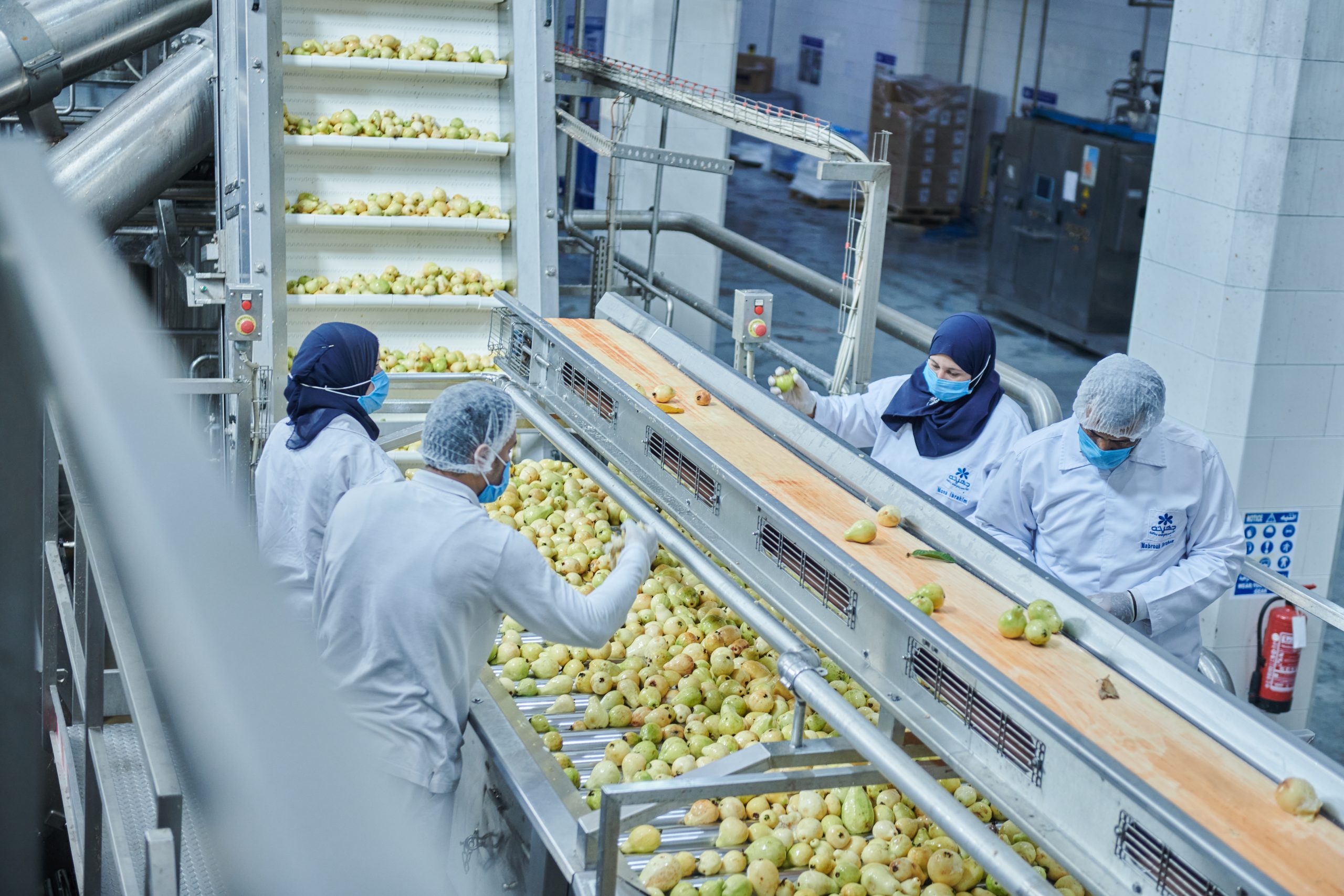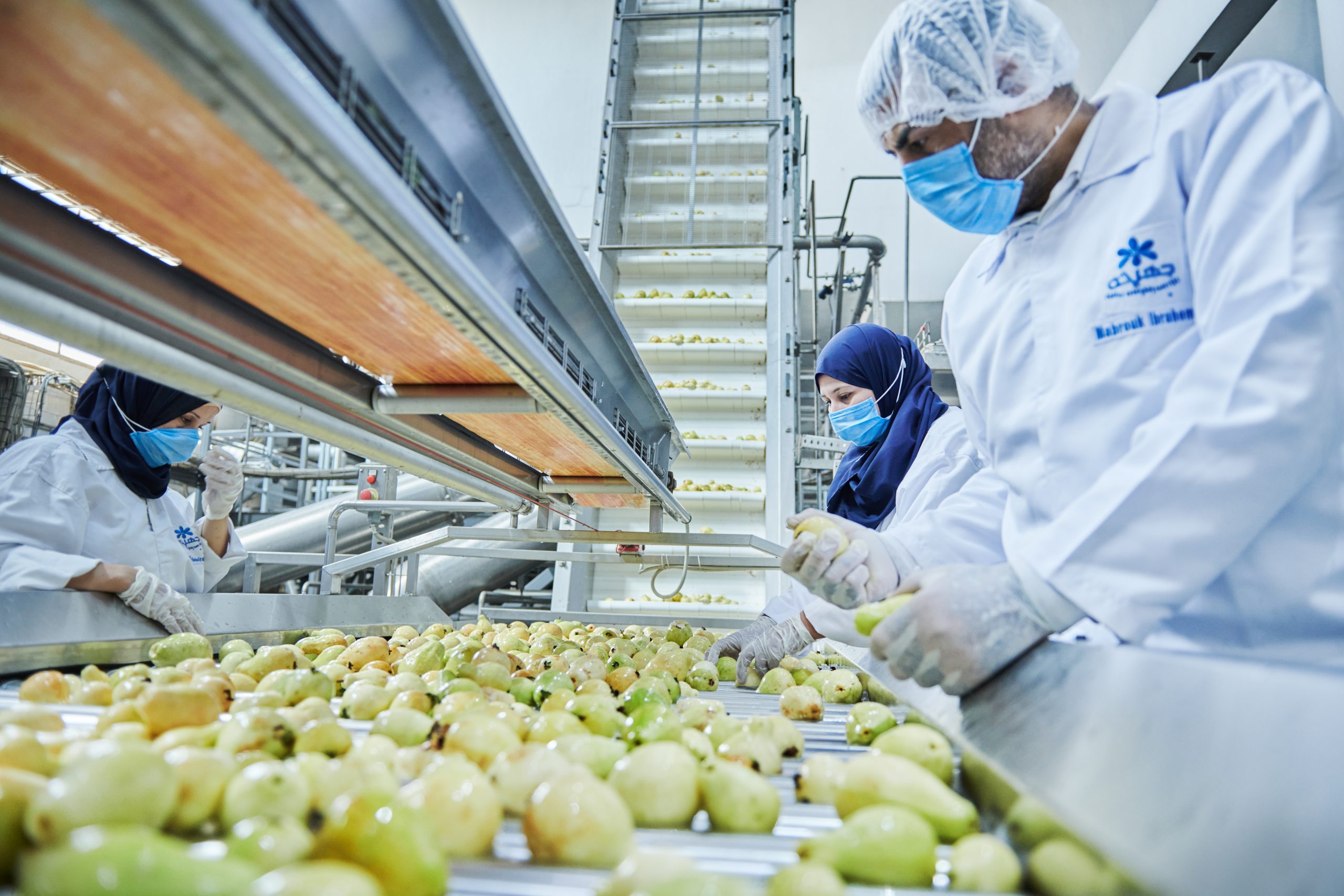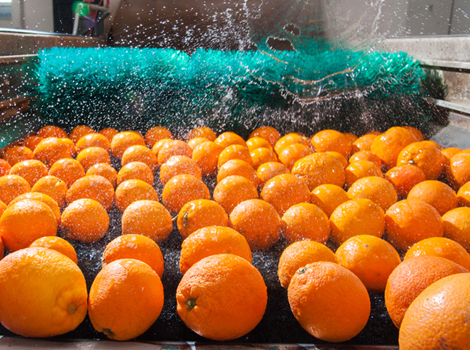
Our Facilities
El Marwa’s two state-of-the-art factories specialize in producing citrus and other tropical fruits.
El Marwa Factory, our first facility built in 1998, produces 25,000 tons of tropical fruit purees and concentrates every year.
Established in 2007, the Modern Concentrates Factory has expanded El Marwa’s citrus extracting capacity from 300 to 700 tons per day. The factory relies on 12 state-of-the-art FMC extractors and a tower evaporator to produce 10,000 tons of orange, grapefruit and lemon citrus concentrates each year.

Production Lines and Facilities Management
Both locations operate using up-to-date hygiene practices, and our products are manufactured using highly efficient production lines manufactured and supplied by a leading global provider of high-tech food production equipment as a prime solution and equipment suppliers within the fruit industry segment, from preparation to preservation and packaging.

Our facilities use the following production lines:
– JBT Lines: Citrus line (Orange , Mandarin , and Lemon)
– CFT Rossi & Catelli line: Tropical and Tomato with a mix flow evaporator
– Voran line: Apple, Grapes, and Carrot concentrates
– Cuccolini line: Pomegranate
– CFT: Compound Line (bag in box products)
We also rely on a comprehensive range of technologies to ensure the preservation of freshness, taste, texture, appearance and nutritional value of our fresh and processed fruit products.
El Marwa utilizes a fully integrated SAP system, a comprehensive management and monitoring tool for enterprise resource planning (ERP), to standardize all operations and processes. Our staff numbers 150 people in administration and production, all of whom are committed to rigorous standards of employee training and safety.

Sixth of October City
The strategic location of El Marwa’s factories in Sixth of October City places our operations in close proximity to raw materials, minimizing the time between harvesting and processing to ensure production efficiency and freshness.
The area’s well-developed infrastructure for industry includes a stable power and water supply, reliable transportation services that facilitate the travel of 500,000 daily commuters, nearby dry ports that facilitate export logistics and transactions, and residential accommodations for employees.
